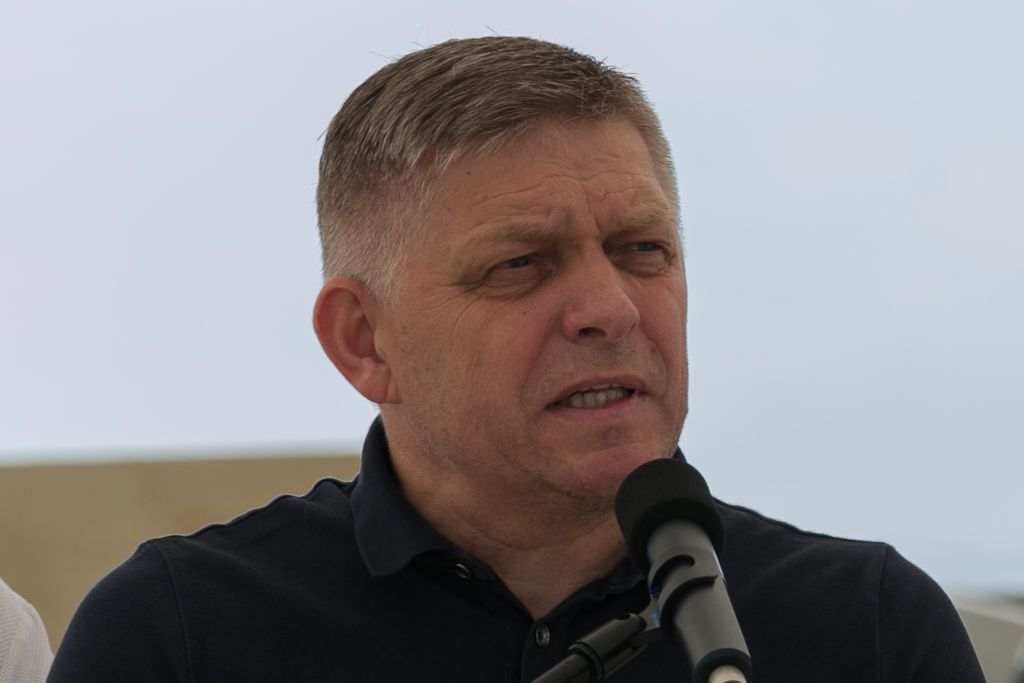Slovak Prime Minister Robert Fico has expressed his intention to resume economic and standard relations with Russia after the end of Moscow’s war against Ukraine. Fico, much like Hungarian Prime Minister Viktor Orban, has been critical of Western military aid for Ukraine and sanctions against Russia. He believes that friendly relations with Ukraine will be important for Slovakia, emphasizing the need for cooperation between the European Union and Russia. Despite his Ukraine-skeptic platform, Fico has allowed commercial military sales to Kyiv and hopes that Ukraine will remain a transit country for Russian exports to Europe.
Fico, who took office in 2023 after winning the Slovak parliamentary elections on a populist platform, is expected to serve until 2027. While he has maintained controversial rhetoric, he has not gone against EU consensus in practical steps, unlike Hungary. Slovakia continues to buy Russian oil flowing through the Druzhba pipeline, which also passes through Ukraine. Despite tensions between Slovakia and Ukraine over the transit of sanctioned Lukoil oil, Slovakia has been granted permission to continue buying Russian pipeline oil amid EU efforts to reduce Russian imports.
The Slovak prime minister has indicated that he will not provide military aid to Ukraine but has allowed for commercial military sales to continue. Fico’s stance has disappointed Ukraine, with the country’s Foreign Ministry expressing disappointment over his comments urging Kyiv to address what he described as “fascist elements” within its military ranks. Despite this, Fico has emphasized the importance of maintaining friendly relations with Ukraine, as well as the EU’s need for cooperation with Russia. He hopes that Ukraine will remain a key transit country for Russian exports to Europe.
Fico’s comments on restoring economic and standard relations with Russia after the war in Ukraine ends reflect his pragmatic approach to foreign policy. While he has been critical of Western military aid for Ukraine and sanctions against Russia, he has not taken concrete steps to undermine EU consensus. Slovakia’s continued purchases of Russian oil and support for commercial military sales to Ukraine demonstrate Fico’s balancing act between maintaining relations with both Russia and the EU. His term in office is expected to see further developments in Slovak-Russian relations, as well as Slovakia’s stance towards the conflict in Ukraine.
Despite his populist, Ukraine-skeptic platform, Slovak Prime Minister Robert Fico has maintained a practical approach to foreign policy, balancing relations with Russia and the EU. While he has expressed a desire to resume economic and standard relations with Russia after the war in Ukraine ends, Fico has not actively undermined EU consensus on sanctions against Russia. His pragmatic approach has allowed Slovakia to continue buying Russian oil and support commercial military sales to Ukraine, despite tensions with Kyiv over the transit of sanctioned oil. Fico’s term in office until 2027 is likely to see further developments in Slovak-Russian relations and the country’s stance towards the conflict in Ukraine.
In conclusion, Slovak Prime Minister Robert Fico’s comments on restoring relations with Russia after the war in Ukraine reflect his pragmatic approach to foreign policy. Despite criticism of Western military aid for Ukraine and sanctions against Russia, Fico has not taken concrete steps to undermine EU consensus. His balancing act between maintaining relations with both Russia and the EU, as well as his support for continued commercial military sales to Ukraine, demonstrates a nuanced stance on international affairs. As Slovakia’s leader until 2027, Fico’s approach to foreign relations is expected to shape the country’s stance towards Russia and Ukraine in the coming years.


